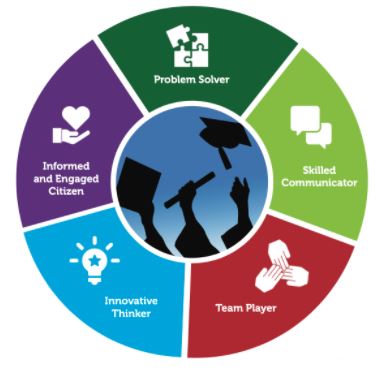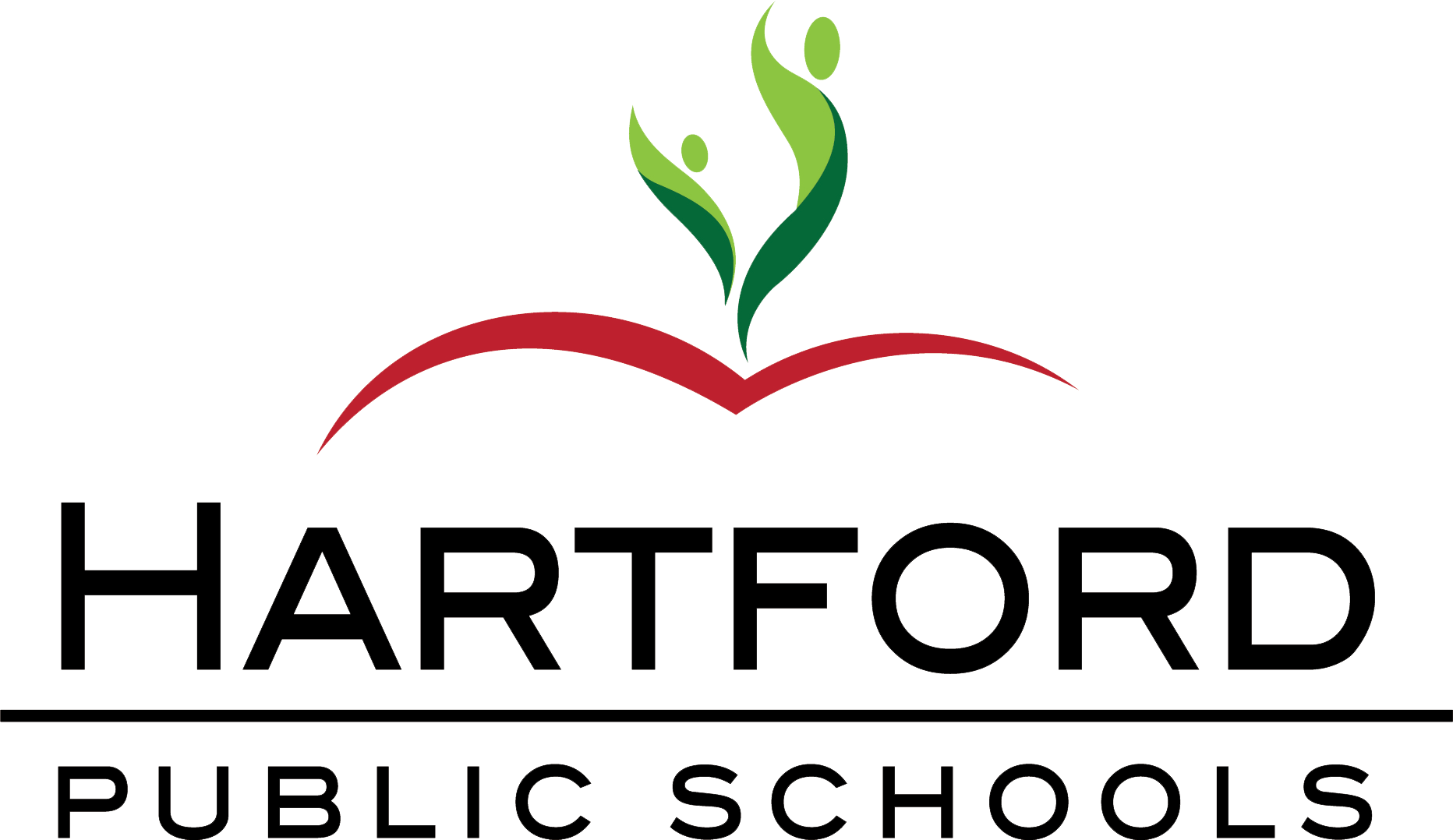
Portrait of a Graduate
What Is The Portrait of a Graduate?
The Hartford Public Schools Portrait of a Graduate reflects our collective vision, informed by research and the input of multiple stakeholders, of the skills incumbent to our students’ post-secondary success. Our Portrait of a Graduate will guide our instructional vision and our curriculum implementation efforts to ensure that all students have adequate and equitable access to instructional experiences that will help them graduate ready to transform our world.
Portrait of a Graduate Video (English | Spanish)
How Does The Portrait of a Graduate Guide Teacher Practice?
Each of the five competencies in the Portrait of a Graduate corresponds to five separate indicators which define the skills and mindsets students must develop for post-secondary success. At the Pre-K to 8th grade level, teachers are encouraged to develop instructional experiences that build the student competencies of the Portrait of a Graduate. In high school, teachers will utilize the Portrait of a Graduate rubrics to assess student mastery in each competency. In most cases, teachers will find it useful to utilize pieces of multiple rubrics for different assessments or instructional tasks, rather than the entirety of just one rubric. School-based administrators will lead implementation of the Portrait of a Graduate in their building, establishing department and/or grade-level expectations for how and when the PoG should be utilized throughout the school year.
Our Portrait of a Graduate Hub includes:
Resume Builder
PoG Rubrics
Capstone Resources
Problem Solver

To support the growth and development of students as Problem Solvers, educators are encouraged to develop instructional tasks and offer feedback related to the following indicators:
Prior Knowledge: Draws on prior knowledge and evidence-based reasoning to create meaningful questions.
Evidence: Collects multiple sources of evidence, analyzing and questioning the accuracy, bias, and relevance of information.
Planning Solutions: Prioritizes purposeful solutions that help develop an action plan to achieve short- and long-term goals.
Implementing Action Plan: Applies background and newfound knowledge to solve a problem within the chosen topic and create a positive impact within the community.
Evaluating Impact: Reflects on the problem solving process and applies constructive feedback to continually develop more impactful solutions.
Skilled Communicator

To support the growth and development of students as Skilled Communicators, educators are encouraged to develop instructional tasks and offer feedback related to the following indicators:
Planning: Plans information in ways appropriately tailored to the intended purpose and audience.
Expression of Ideas: Conveys information in ways that promote clarity and understanding.
Creativity & Thoughtfulness: Utilizes authentic multiple media and/or technologies to communicate complex ideas that reflect critical thinking.
Active Listening: Actively listens to build deeper understanding of others’ points of view.
Respectful Participation: Fosters collegial discussion and respectfully responds to diverse perspectives.
Team Player

To support the growth and development of students as Team Players, educators are encouraged to develop instructional tasks and offer feedback related to the following indicators:
Cooperation: Works collaboratively with a diverse group and considers other points of view.
Awareness: Demonstrates an awareness of other people’s emotions and perspectives.
Facilitation: Utilizes appropriate strategies to complete work as a group.
Resourcefulness: Inquires and discovers resources and feedback to improve work.
Responsiveness: Resolves conflicts productively and respectfully.
Innovative Thinker

To support the growth and development of students as Innovative Thinkers, educators are encouraged to develop instructional tasks and offer feedback related to the following indicators:
Defines Creative Challenge: Identifies a problem, investigation, or challenge that requires original thinking and innovation to address.
Generates Ideas: Uses a wide range of idea creation techniques to propose potential innovations and analyze their feasibilities.
Contextualization: Displays an understanding of the larger context of new ideas with curiosity, imagination, and tenacity.
Persistence through Failure: Demonstrates a willingness to try something new and learn from the experience, positive or negative.
Idea Redesign: Refines, strengthens, and continually develops ideas to improve outcomes.
Informed and Engaged Citizen

To support the growth and development of students as Informed and Engaged Citizens, educators are encouraged to develop instructional tasks and offer feedback related to the following indicators:
Informed Behavior: Demonstrates an informed and tactful role within the school and local community.
Acceptance: Openly accepts different communities and cultures while rejecting practices that are inequitable or contribute to injustice.
Action: Positively contributes to the school and broader community.
Self-Regulation: Creates positive and self-motivated work habits.
Digital Presence: Uses digital media to create a respectful, purposeful identity online.
